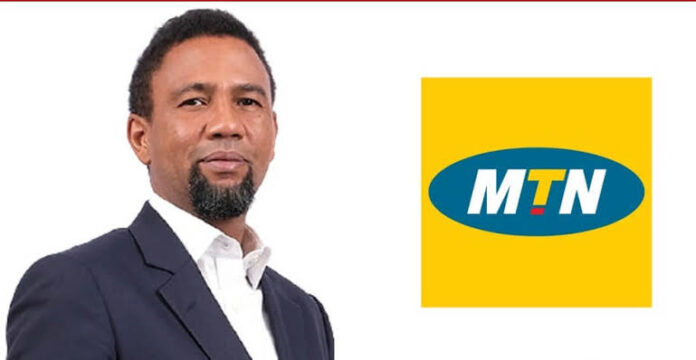…exits Guinea, sells business to govt
By Charles Ebi, Abuja
Chief Executive Officer of MTN Communications Plc, Karl Toriola has revealed that telecom companies applied for approval of 100 pe cent increase in tariff.
The MTN CEO made the disclosure yesterday in an interview monitored by AljazirahNigeria.
The tariff hike covers all telecom services including voice and data.
Toriola’s comment came in the wake of calls for an increase in tariff of cost issues.
Telecom operators have decried the rising cost of operations which is threatening their survival.
But the Nigerian Communications Commission, NCC, has stalled the approval over hardship faced by consumers.
The Minister of Communication and Digital Economy, Bosun Tijani in a recent interview said there is more to the communication sector than the tariff review.
But Toriola said “The cost we are expending are actually exceeding our revenue. Even though we are seeing revenue growth and there is no way that the industry can continue to sustain itself and provide the required quality of service under this structure.
“We have put forward the request of approximately 100 per cent in tariff increases to the regulators. I doubt they are going to approve that quantum of increases because they are very sensitive to the current economic situation in the country.
“But we are hopeful and optimistic that the realities are steering us in the face and the right decision will be taken for the sustainability of the industry.”
The MTN boss admitted the government has been supportive of the industry with regulations like the National Infrastructure Bill which protects telecom infrastructures as national assets.
But Toriola lamented that the telecom sector has a problem of sustainability.
The CEO said, “Yes everyone in Nigeria has gone through difficult time in the last few years due to inflation and devaluation, etc but the challenge that we face is not about profitability. It is about sustainability.
“If you imagine a company that four or five years ago earned N1tn and was making 10 per cent profit- N100bn. The total cost put together was N900bn. Subsequently, two or three things happened like devaluation of the naira.
“Official exchange has gone up from about N420/$ or N450/$ to N1550/$ at the end of the year. So, that has driven our cost structures up drastically. Diesel has gone from pre-COVID-19 times of N200-N300/litre to N1000; petrol has gone up several folds. Power generation and the cost of procuring material.”
He said raw materials in the sector include batteries, fibre cables and base station towers.
Toriola explained that network service providers pay software licensing fees for the networks adding that the costs have risen astronomically.
Meanwhile, MTN Group said it has concluded the sale of its Guinea operations to the State of Guinea, marking its final exit from the market.
According to a statement from the Group, the sale was concluded on December 30, 2024.
MTN said the transaction aligns with its focus on portfolio optimization and simplification, as part of the Ambition 2025 strategy. Commenting on the sale of the business, MTN Group President and CEO, Ralph Mupita, stated:
“This milestone marks a new phase for MTN Guinea-Conakry under local ownership, and MTN thanks the staff, customers, regulators and broader stakeholders in Guinea for the support during the time MTN has been operational in the country.
“Concluding this transaction is in line with the strategy to simplify the portfolio and allocating capital to markets where we can make a difference as MTN and deliver long-term growth and returns.”
The decision to exit the Guinea market stems from MTN’s assessment of portfolio fit within its risk management framework.
Speaking to the media in Johannesburg in August 2024, Mupita explained the group’s rationale for disposing of operations in Guinea-Conakry and Guinea-Bissau.
“Given our risk management framework and the things we need, some markets are very difficult. We’re not the best owners of those businesses because they’re subscale or they’re small, and they are not going to be able to fund their own growth,” Mupita shared in remarks reported by Connecting Africa.
He elaborated that the group evaluates each market’s ability to fund its own growth sustainably.
According to him, the moment a business sustainably cannot fund its own growth for whatever reason, “we have to assess portfolio fit—yes or no.”
He noted that they were difficult decisions to make because “they involve colleagues, but they are necessary all the same.”
For Guinea-Conakry and Guinea-Bissau, the group determined that even with significant growth in revenue or profits, MTN was not the best owner of these operations.
“We looked at them and said, even if they triple their revenue or their profits, are we the best owners of these businesses? And the answer was no, so we said let’s engage with third parties,” Mupita stated.
In its full year for 2023 released in March 2024, the group confirmed it had signed a sale and purchase agreement with Pan-African operator, Telecel, for a consideration of US$1 for each of its operations in Guinea-Conakry and Guinea-Bissau.
“MTN and Telecel entered into a share purchase agreement for the acquisition of MTN’s equity interests in MTN Guinea-Bissau and MTN Guinea-Conakry.
“The agreement was reached in December 2023 and is subject to a number of conditions precedent,” the company had stated.
Both the Guinea businesses were in net liability positions and Telecel was to pick up those net liabilities as they take over.
However, in its half year results released in August 2024, MTN confirmed that Guinea-Bissau operation had been sold to Telecel Group, leaving Guinea Conakry.





